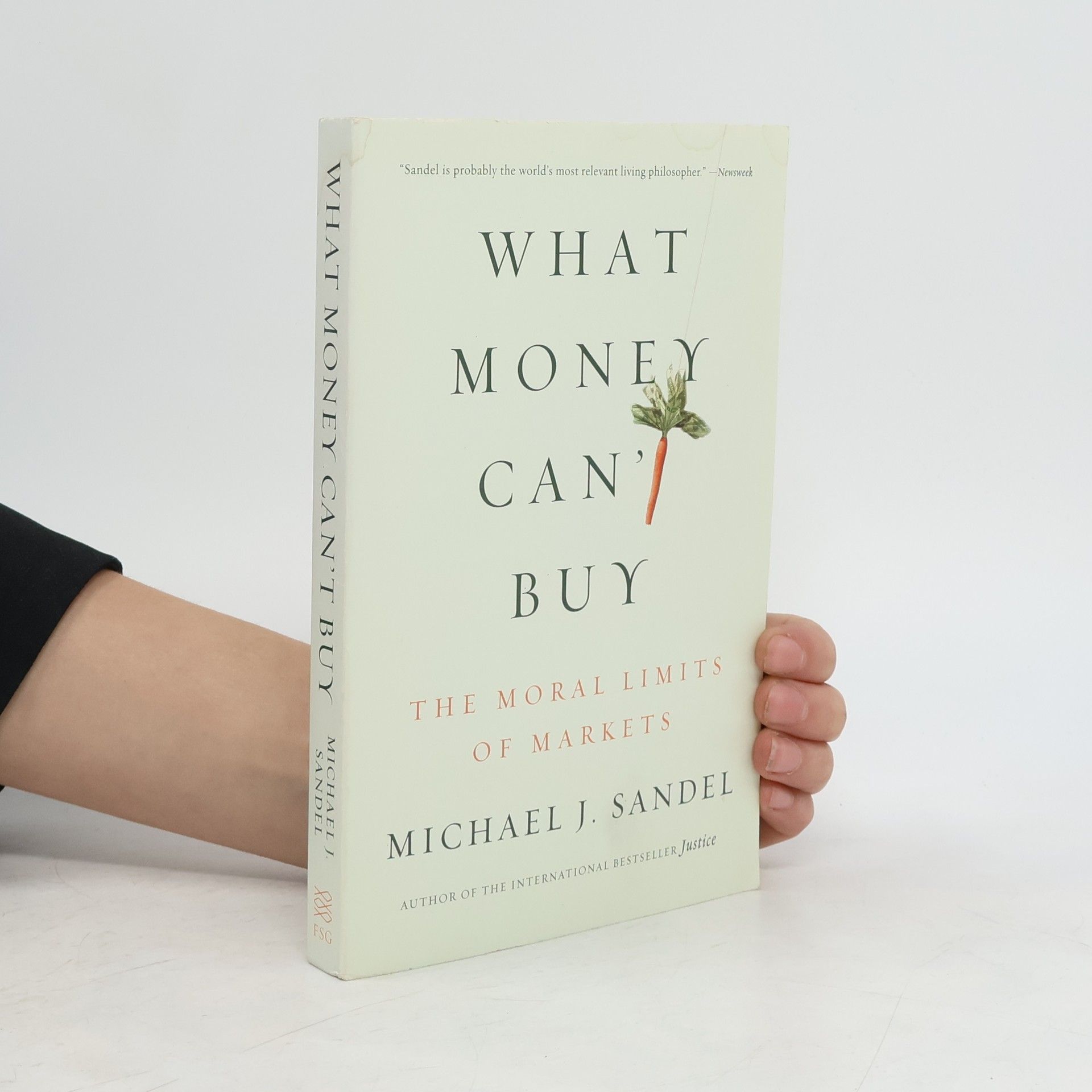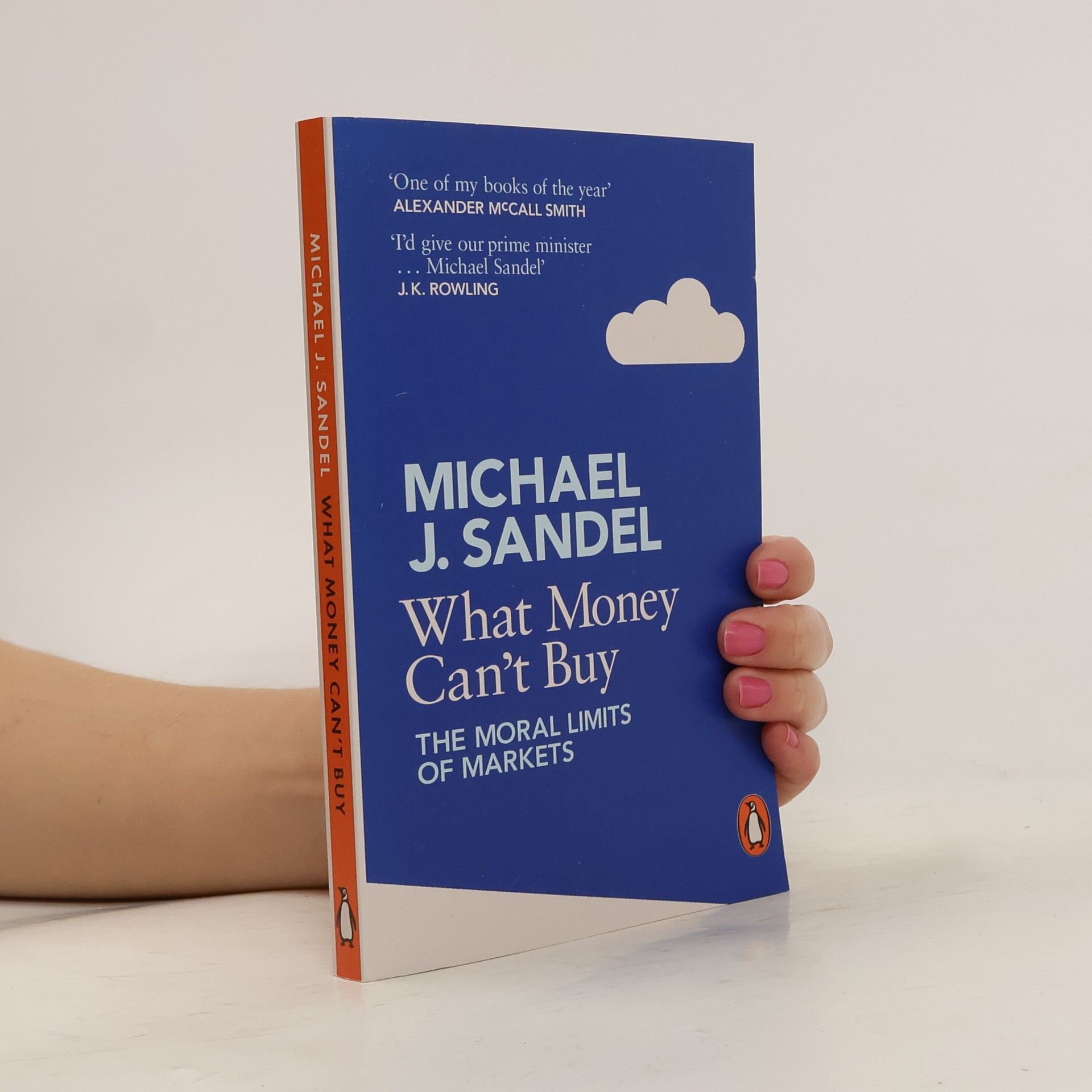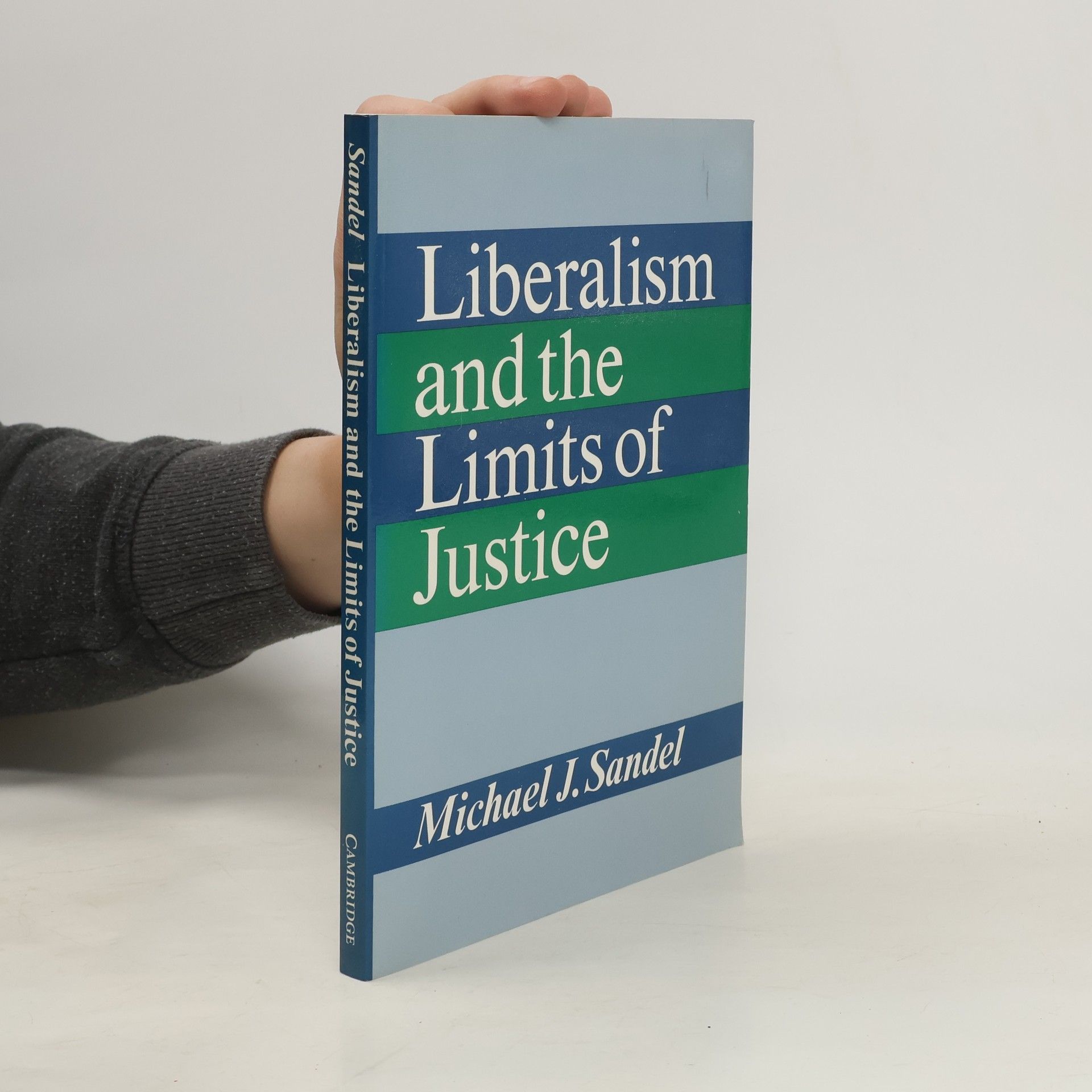Michael Sandel, profesor morální a politické filosofie na Harvardově univerzitě, v knize srozumitelně vysvětluje, že prospěšná funkce trhu má své morální meze. Ačkoli zaznamenáváme tendenci, že stále více věcí a služeb je dnes možné prodat a koupit (například lidské orgány na ilegálním trhu), většina lidí se nepřeje, aby trhy zcela ovládaly jejich životy a byly nejvyšším hodnotovým kritériem. Kniha je vhodná především pro čtenáře z odborné i širší veřejnosti se zájmem o dané aktuální téma a o současnou morální, ekonomickou, sociální a politickou filosofii, politologii, sociologii a ekonomii.
Michael Sandel Knihy
Michael J. Sandel je americký politický filozof známý svým zkoumáním morálních a politických otázek. Jeho práce se hluboce zabývá povahou spravedlnosti, občanství a veřejného dobra. Sandel zpochybňuje moderní liberální pojetí individuální autonomie a zdůrazňuje význam společenských vazeb a sdílených hodnot. Jeho analýzy vybízejí k zamyšlení nad tím, jak naše osobní identity a morální závazky formují naše politické životy a jak můžeme budovat spravedlivější a soudržnější společnost.

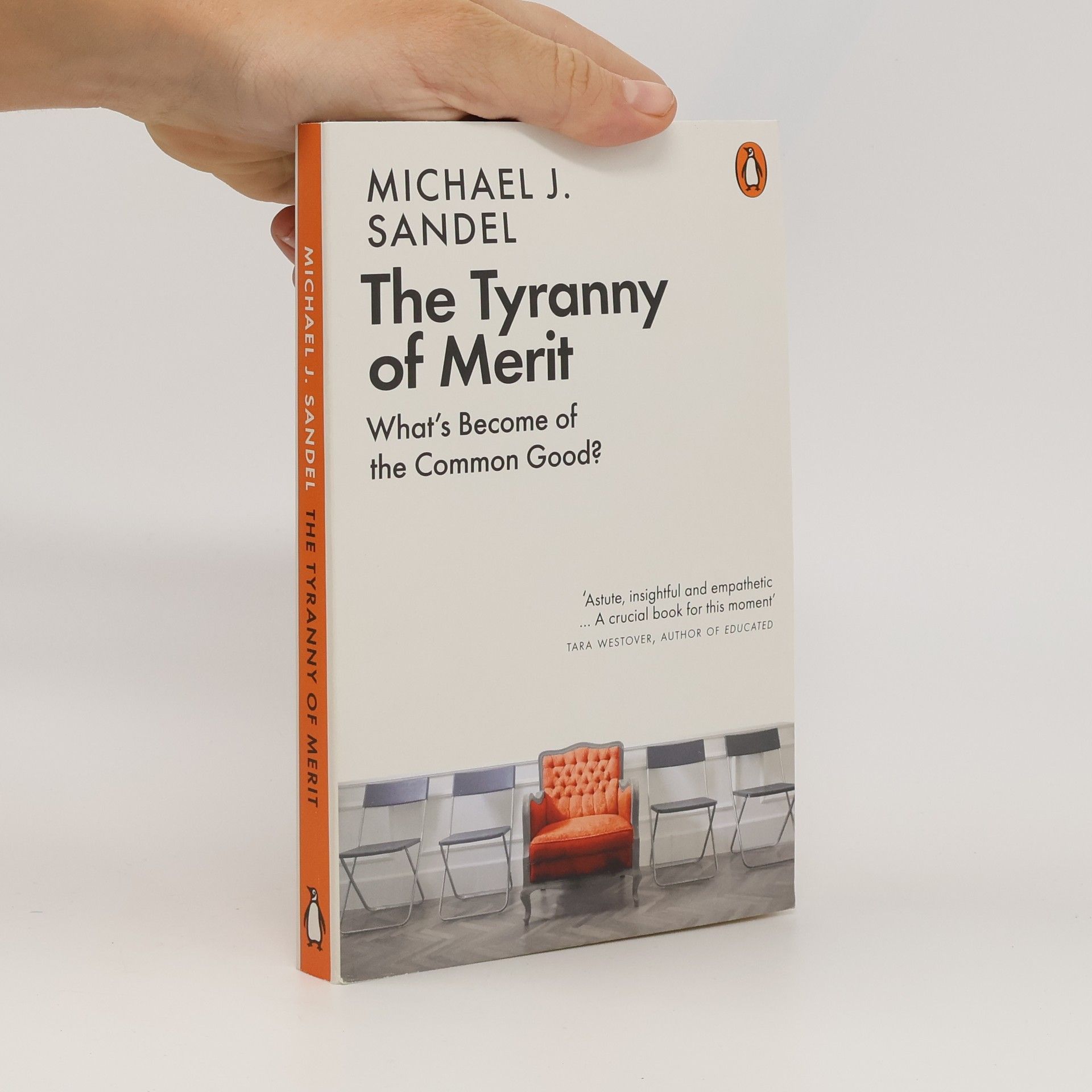




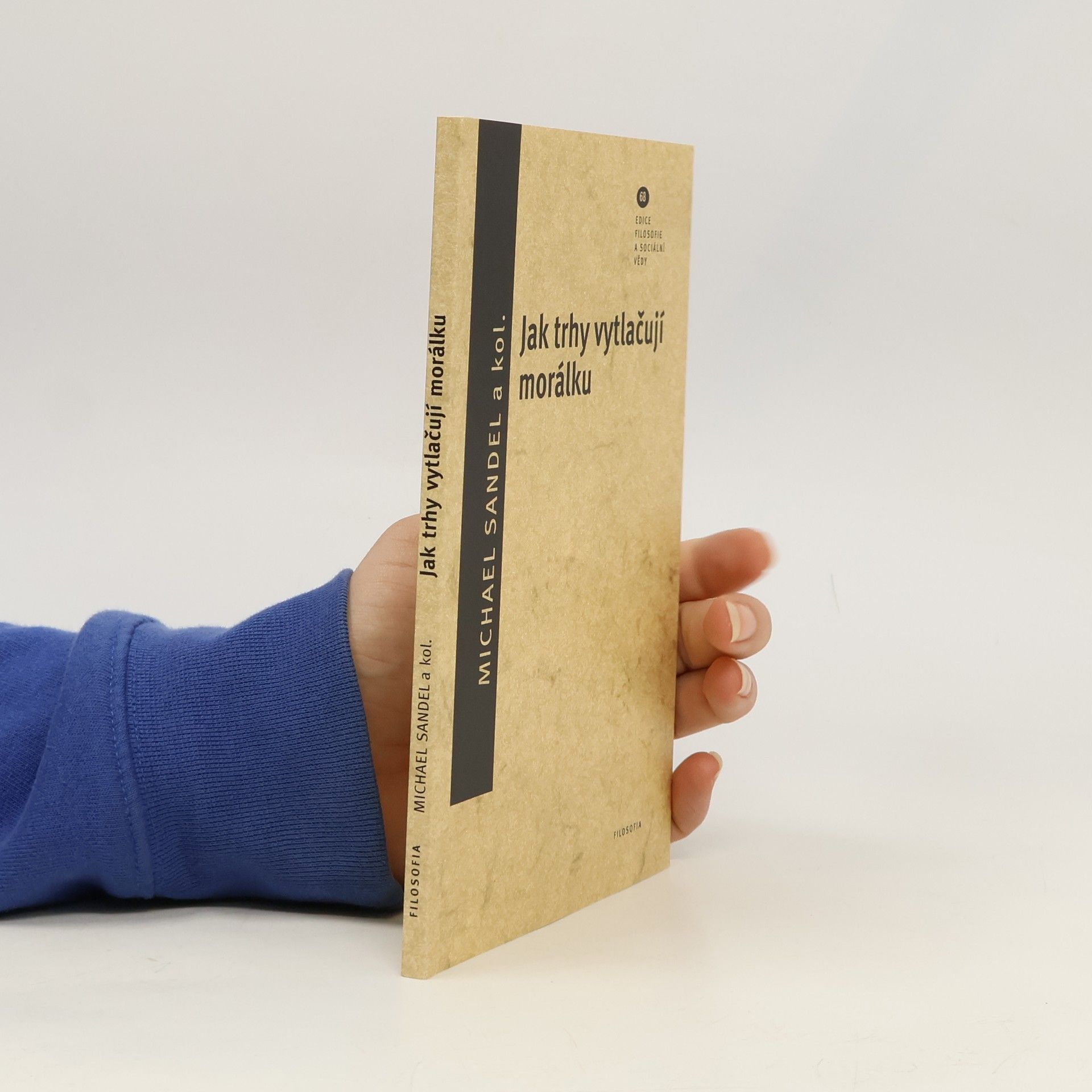
Spravedlnost: co je správné dělat
- 306 stránek
- 11 hodin čtení
V knižním zpracování populárního televizního pořadu profesora Michaela Sandela (Harvard) se čtenáři představují svižně a vtipně psané kapitoly, bohatě doplněné aktuálními příklady problematiky spravedlnosti. Rozehrávají se v nich některé z nejožehavějších morálních otázek, které dnes hýbou společností na Západě: je morální sanovat banky, požadovat přemrštěné ceny, pozitivně diskriminovat při přijímání na univerzitu či ukládat povinnou službu v armádě? Odhalují také anatomii některých klíčových hodnotových sporů: o cenu lidského těla, o přípustnost homosexuálních sňatků, o kolektivní odpovědnost komunity či o roli náboženství v politice. Autora však zaměstnávají nejen „velké“, ale i „malé“, každodenní problémy, jako jsou smysl sportovních her, pouta rodinné solidarity nebo nároky imigrantů...
Tyranie zásluh : kam se podělo obecné dobro
- 294 stránek
- 11 hodin čtení
Demokracie je v ohrožení. Již dlouho se ve společnosti prohlubuje propast mezi vítězi a poraženými, ovlivňuje politiku a vzdaluje nás od sebe. K překonání zloby a nevraživosti vůči politickým a kulturním elitám je třeba, aby mainstreamové strany, podobně jako jejich protějšky po celém světě, přehodnotily svou misi a účel. Naděje na obrodu našeho morálního a občanského života závisí na tom, zda pochopíme, jak se v posledních dekádách postupně rozpadala společenská pouta a respekt, mimo jiné i v důsledku meritokratické etiky orientované na trh. Kniha se snaží vysvětlit příčiny dnešní situace a hledá cestu zpět k politice obecného blaha.
Co si za peníze (ne)koupíte. Společnost vstupuje do nové éry, vše je na prodej
- 208 stránek
- 8 hodin čtení
Žijeme v době, kdy můžeme koupit či prodat téměř vše. Za poslední tři desetiletí došla situace tak daleko, že nám trhy a tržní hodnoty vládnou více než kdykoli předtím. Do této situace jsme se nedostali žádným vědomým rozhodnutím. Jako by se nám to přihodilo zčista jasna. Věděli jste například, že si můžete zaplatit předbíhání ve frontě, koupit služby náhradní matky nebo se pojistit proti placení pokut? Existují vůbec ještě nějaké morální a občanské statky, které si za peníze nelze koupit? (společnost vstupuje do nové éry, vše je na prodej)
These are dangerous times for democracy. We live in an age of winners and losers, where the odds are stacked in favour of the already fortunate. Stalled social mobility and entrenched inequality give the lie to the promise that "you can make it if you try". And the consequence is a brew of anger and frustration that has fuelled populist protest, with the triumph of Brexit and election of Donald Trump. Michael J. Sandel argues that to overcome the polarized politics of our time, we must rethink the attitudes toward success and failure that have accompanied globalisation and rising inequality. Sandel highlights the hubris a meritocracy generates among the winners and the harsh judgement it imposes on those left behind. He offers an alternative way of thinking about success - more attentive to the role of luck in human affairs, more conducive to an ethic of humility, and more hospitable to a politics of the common good.
The tyranny of merit : what's become of the common good?
- 288 stránek
- 11 hodin čtení
"The world-renowned philosopher and author of the bestselling Justice explores the central question of our time: What has become of the common good? These are dangerous times for democracy. We live in an age of winners and losers, where the odds are stacked in favor of the already fortunate. Stalled social mobility and entrenched inequality give the lie to the American credo that 'you can make it if you try'. The consequence is a brew of anger and frustration that has fueled populist protest and extreme polarization, and led to deep distrust of both government and our fellow citizens--leaving us morally unprepared to face the profound challenges of our time. World-renowned philosopher Michael J. Sandel argues that to overcome the crises that are upending our world, we must rethink the attitudes toward success and failure that have accompanied globalization and rising inequality. Sandel shows the hubris a meritocracy generates among the winners and the harsh judgment it imposes on those left behind, and traces the dire consequences across a wide swath of American life. He offers an alternative way of thinking about success--more attentive to the role of luck in human affairs, more conducive to an ethic of humility and solidarity, and more affirming of the dignity of work. The Tyranny of Merit points us toward a hopeful vision of a new politics of the common good"--
What Money Can't Buy. Was man für Geld nicht kaufen kann, Englische Ausgabe
- 256 stránek
- 9 hodin čtení
"Should we pay children to read books or to get good grades? Should we allow corporations to pay for the right to pollute the atmosphere? Is it ethical to pay people to test risky new drugs or to donate their organs? What about hiring mercenaries to fight our wars? Auctioning admission to elite universities? Selling citizenship to immigrants willing to pay? In What Money Can't Buy, Michael J. Sandel takes on one of the biggest ethical questions of our time: Is there something wrong with a world in which everything is for sale? If so, how can we prevent market values from reaching into spheres of life where they don't belong? What are the moral limits of markets? In recent decades, market values have crowded out nonmarket norms in almost every aspect of life---medicine, education, government, law, art, sports, even family life and personal relations. Without quite realizing it, Sandel argues, we have drifted from having a market economy to being a market society. Is this where we want to be? ... What is the proper role of markets in a democratic society---and how can we protect the moral and civic goods that markets don't honor and that money can't buy?"--Back cover
What money can't buy : the moral limits of markets
- 256 stránek
- 9 hodin čtení
In recent decades, market values have impinged on almost every aspect of life - medicine, education, government, law, even family life. We have drifted from having a market economy to being a market society. In What Money Can't Buy Michael Sandel asks: Isn't there something wrong with a world in which everything is for sale? And how do we protect the things that really matter? 'Brilliant, easily readable, beautifully delivered and often funny . . . an indispensable book.' David Aaronovitch, The Times 'The indispensable voice of reason.' John Gray 'A star philosopher.' Diane Coyle, Independent 'So patient and accumulative in its argument and examples.' John Lanchester 'A wake-up call.' Rowan Williams, Prospect 'Confronting and deeply moving.' Decca Aitkenhead, Guardian 'The world's most relevant living philosopher.' Newsweek 'Currently the most effective communicator of ideas.' Guardian
Liberalism and the limits of justice
- 199 stránek
- 7 hodin čtení
A liberal society seeks not to impose a single way of life, but to leave its citizens as free as possible to choose their own values and ends. It therefore must govern by principles of justice that do not presuppose any particular vision of the good life. But can any such principles be found? And if not, what are the consequences for justice as a moral and political ideal? These are the questions Michael Sandel takes up in this penetrating critique of contemporary liberalism. This new edition includes a new introduction and a new final chapter in which Professor Sandel responds to the later work of John Rawls.
Twenty-five years after his prescient Democracy's Discontent, Michael Sandel updates his classic work for our more fractious age. He shows how, since the 1990s, Democrats and Republicans embraced a market faith that led to the toxic politics of our time. To rescue democracy, he argues, we must reimagine the economy and revitalize the civic project.
